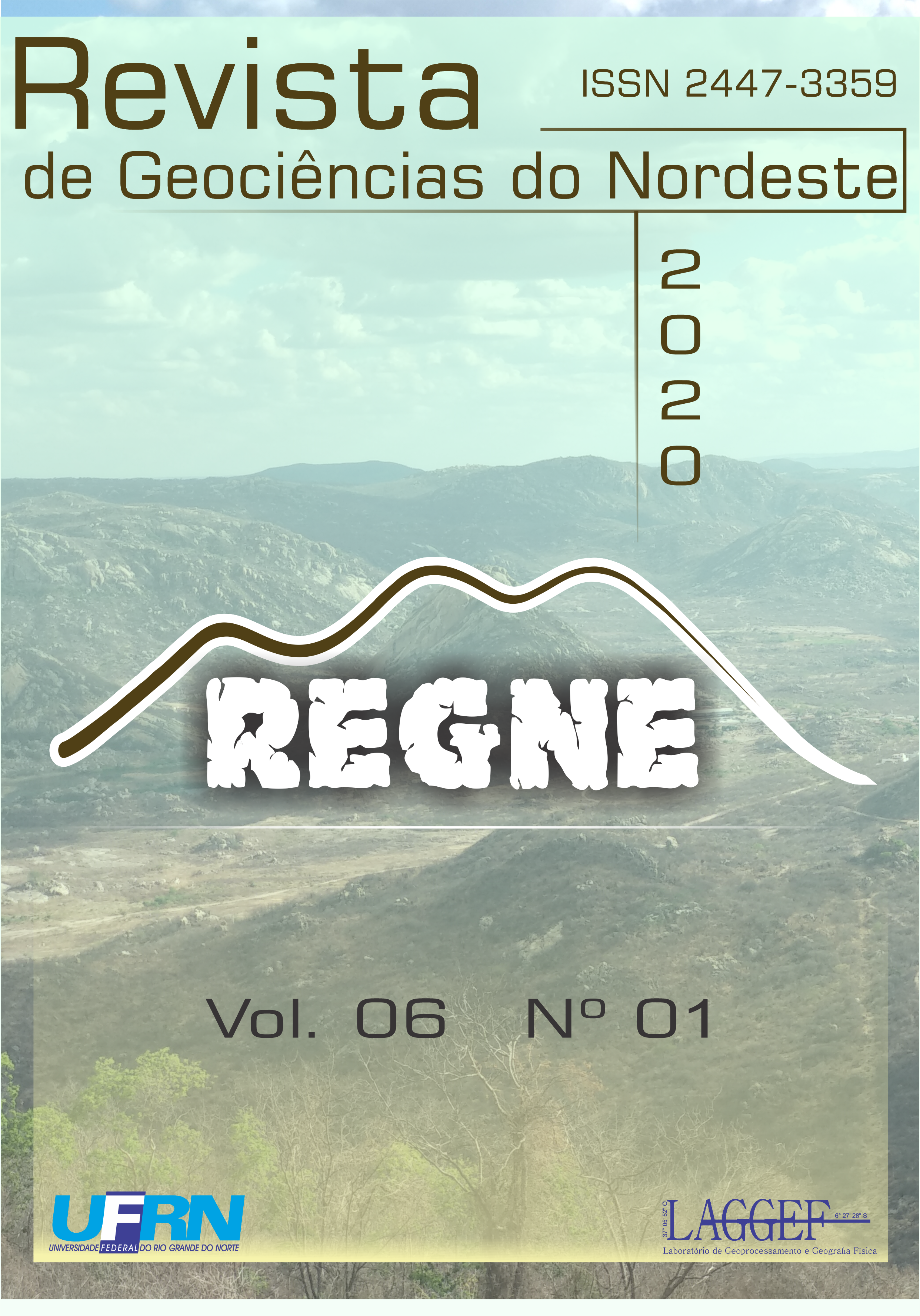IDENTIFICAÇÃO E AVALIAÇÃO DAS CONDIÇÕES DE ABASTECIMENTO DE ÁGUA E ESGOTAMENTO SANITÁRIO NOS DIFERENTES GRAUS DE VULNERABILIDADE SOCIOAMBIENTAL DO MUNICÍPIO DE JOÃO PESSOA, PB.
DOI:
https://doi.org/10.21680/2447-3359.2020v6n1ID19066Resumo
Nas últimas décadas, o Brasil passou por mudanças significativas em termos da construção das cidades e alguns estudiosos defendem que estes lugares atuam como mecanismos de exclusão, pois os centros são dotados de infraestrutura e as periferias caracterizam-se como um espaço distante e subequipado que predominantemente apresenta populações de baixa renda. Estas características possibilitam o risco e a privação de infraestrutura adequada que produz riscos à saúde humana, qualidade de vida e degradação ambiental, configurando em vulnerabilidade socioambiental. O objetivo do trabalho foi identificar e avaliar as condições de esgotamento sanitário e de abastecimento de água nos diferentes graus de vulnerabilidade socioambiental, pelo uso de Sistema de Informações Geográficas (SIG) do município de João Pessoa, localizado no estado de Paraíba para o ano de 2010. A metodologia consiste na sobreposição cartográfica e espacialização de seis variáveis do Censo Demográfico de 2010 do IBGE e como resultados tem-se que ao relacionar as variáveis elencadas de abastecimento de água e esgotamento sanitário com as classes de vulnerabilidade socioambiental mais intensas (“Alta” e “Muito Alta”), observou-se que a distribuição de água e coleta de esgoto não estão necessariamente relacionadas a áreas de maior vulnerabilidade socioambiental como preconiza a hipótese aplicada ao trabalho.


 Português (Brasil)
Português (Brasil) English
English








